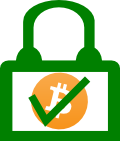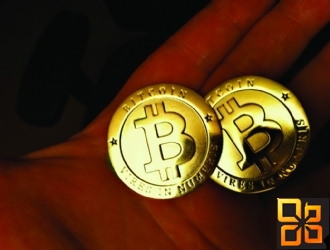Rough Trades: Digital Derivatives Hit the Bitcoin Markets as Wall Street Bankers Take Interest

| THE BEST WAY TO FIND serious traders of the digital currency Bitcoin is to log onto Internet Relay Chat—that bare-bones, plain-text experience that hasn’t changed much since its creation in 1988—around midnight, and jump into one of the many conversations dedicated to the phenomenon. Bitcoin, a decentralized payment system that approximates cash, has been quickly gaining popularity since May, when its bit part in a Gawker story about an “underground website where you can buy any drug imaginable“ turned into a starring role in stories like Fast Company’s “Funny Money: Is Bitcoin the Future of Currency … Or a Total Scam?”
On Sunday night, Betabeat blundered into #bitcoin-pit, an IRC channel “for professional trading,” and found a surprising number of Wall Street professionals, including “Bill,” who declined to give his name but proved his employment the next day with a furtive call from an empty conference room at Credit Suisse. He had just sold 400 Bitcoins, he told Betabeat, which he planned to buy back in the morning. Given that the third-largest Bitcoin exchange, Bitomat.pl, had just accidentally deleted the 17,000 BTC it had in deposits at the same time another popular Bitcoin service shut down—possibly because its owner decided it was time to take the money and run—Bill was betting the price would be right. “Bitcoin is like Wall Street was 15 to 20 years ago when I entered,” he said. “Fragmented markets, wide spreads, manipulation, the trading stone ages.” So far, the major Bitcoin exchanges have stuck to buying and selling, which takes much of the fun out of playing the market, as it limits traders’ ability to bet and hedge on the future. “You can’t put in a stop order, you can’t do short sales,” Bill said. “You can’t do more sophisticated strategies.” But Bitcoin finance has come a long way since Bill first bought 150 BTC in December at $.24, transferring money into the Chase bank account of the original founder of a website called Mt. Gox, now the largest Bitcoin exchange. On Monday, Mt. Gox traded more than 20,000 Bitcoins at $13.1, or about $290,000 worth. It now supports a variety of electronic payment methods as well as checks, European bank transfers and international and domestic wire transfers, not to mention cash. The number of exchanges facilitating trades of Bitcoins for U.S. dollars, euros, yen, even Chilean pesos, is also proliferating. Ruxum, founded by a former Citigroup vice president, and CampBX, based in an actual brick-and mortar office in Atlanta, both launched this month. And exchanges are just the beginning. Bitcoin-related start-ups trade shares denominated in Bitcoins via the Global Bitcoin Stock Exchange. There are escrow services for Bitcoin traders and sites that rely on user-submitted reviews to approximate ratings agencies. There are intermediaries for intermediaries, such as BitInstant, a brand-new start-up based in New York that offers credit to traders so trades can execute faster. Just as the first phase of Bitcoin was dominated by nerds and hackers attracted to the technology, the second is being shaped by finance professionals fascinated by the new market. “I sold a put on #bitcoin-otc a few months ago,” Bill said. The buyer was afraid the price was going to fall below a dollar within a week; Bill thought it would stay above $6.50. He was right. “I collected the premium and it never went in the money,” he said, using the Wall Street slang for when an option can be profitably executed. “There’s so much polarization among the people who are familiar with this project, that out of any 10 people you may have five of them who think it’s going to change the world and five of them who think its a scam or pyramid scheme and that it’s going to collapse,” he explained. “Therefore, both those groups would like to trade options.” Mt. Gox, based in Japan, and its month-old competitor TradeHill, based in Chile, both say they plan to offer margin trading to give smaller sellers extra leverage, and options so traders can hedge. “I have a colleague advising us who was the head of software development for Interactive Brokers,” said TradeHill co-founder Adam Stradling, who consulted for five years on Wall Street, studying offshore investment, derivatives, credit, debit and other risk analysis and is now working toward his Certificate in Quantitative Analysis. “He actually runs an entire country for Interactive Brokers, wrote all the code for shorting and margin and a lot of this stuff.” TradeHill has four or five clients that Mr. Stradling believes are connected to boutique hedge funds in New York, he said, who have executed single trades as large as $10,000. “This would give them more features to trade better,” he said. “If they could short the market, or if options allow them to take positions in different ways and also hedge risks … it’s really just evolving the features to look like more traditional trading. |

 [上两篇] MyBitcoin.com Is Back: A Week After Vanishing With at Least $250 K. Worth of BTC, Site Claims It Was Hacked The Feds Are Contemplating a BitCoin Crackdown. Who Should They Police First?
[上两篇] MyBitcoin.com Is Back: A Week After Vanishing With at Least $250 K. Worth of BTC, Site Claims It Was Hacked The Feds Are Contemplating a BitCoin Crackdown. Who Should They Police First?

 网友评论
网友评论


 @好耶网络
Processed In:-0.7148-Seconds, CMS-24Queries-Amazon Web Services
@好耶网络
Processed In:-0.7148-Seconds, CMS-24Queries-Amazon Web Services












 您的位置:
您的位置: 【】
【】
 One indication of how far the currency has evolved: the emergence of Bitcoin derivatives. Despite reluctance by merchants to embrace the new money and a near-constant stream of crises, from cyberattacks to technical failures, the two-and-a-half-year-old technology—carefully designed by a group of anonymous programmers to serve as a standard for digital payments without the need for a central authority—seems to have staying power. This is especially true among its investors, who have graduated from simple transactions like buying and selling to negotiating options and futures contracts.
One indication of how far the currency has evolved: the emergence of Bitcoin derivatives. Despite reluctance by merchants to embrace the new money and a near-constant stream of crises, from cyberattacks to technical failures, the two-and-a-half-year-old technology—carefully designed by a group of anonymous programmers to serve as a standard for digital payments without the need for a central authority—seems to have staying power. This is especially true among its investors, who have graduated from simple transactions like buying and selling to negotiating options and futures contracts.